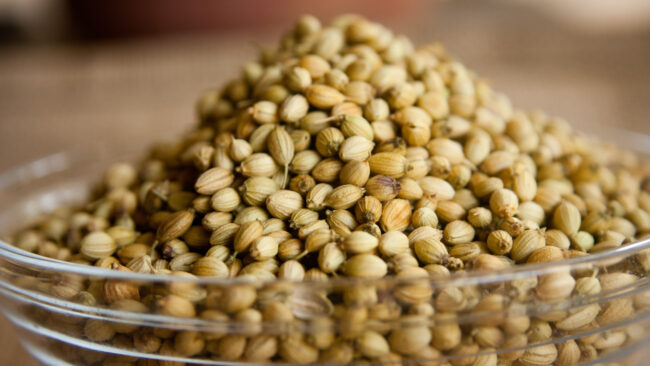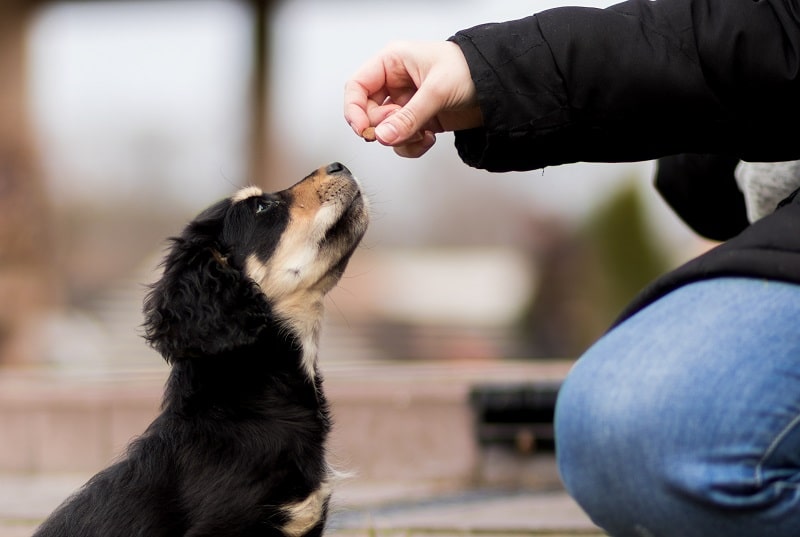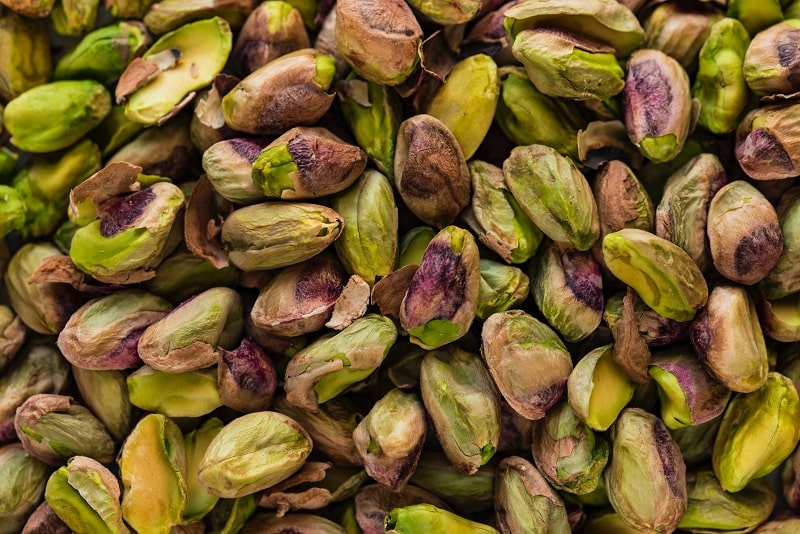Table of Contents
Nuts, kernels, and seeds are usually very healthy, tasty, and also great sources of protein. But nuts can also trigger many allergies. So what about pistachios and dogs? Are these delicious, creamy nuts good for our four-legged friends? Can dogs eat pistachios?
We would like to get to the bottom of this topic in this article.
Can dogs eat pistachios?
Yes, dogs are generally allowed to eat pistachios. As with all nuts, you should feed it with caution at first, as nuts can cause allergies in some dogs (as well as humans). Of course, you have to remove the pistachios from the shells before giving it to your four-legged friend. Pistachio shells are dangerous as they can be choking hazards or get lodged in your dog’s intestinal tract.
Pistachios should be unsalted. Salted ones from the snack shelf in the supermarket are a no-go for your fur baby. Remember NOT to include pistachios in your pet’s daily meals. Occasionally will do. This should be enough to provide essential minerals for your dog.
Ingredients in pistachios that are good for dogs
Pistachios contain vitamins A, B6, B12, C, and D. The nuts also contain iron, calcium, and magnesium. They’re a natural source of healthy fats and vegetable proteins that will surely benefit your dog. 100 grams of pistachios have about 560 calories. So be careful when giving these nuts to an already overweight pet. If you’re usually giving it as a snack, refrain from doing so until your dog has achieved a healthy weight.
Possible allergic reactions that dogs may have to pistachios
There’s a possibility that pistachios can cause allergies. In some cases, it can even lead to breathing problems, particularly for dogs that have eaten large portions of it. Most of the time, however, it might just cause stomach upset or diarrhea. If your dog has accidentally eaten a lot of pistachios, monitor it closely and see whether it’s showing adverse symptoms.
Call the vet immediately when you observe anything out of the ordinary.
Benefits of pistachios for canines
The vitamins, minerals, monounsaturated and polyunsaturated fatty acids are good for the health of your four-legged friend. They strengthen the immune system and ensure a beautiful, shiny coat. Just make sure that they can handle pistachios well.
Disadvantages of pistachios for dogs
While pistachios are often said to be poisonous to dogs, that’s not true. However, spores and molds form on pistachios quite quickly and can go unnoticed. These are very harmful. So it’s important to ensure that whatever you’re feeding your dog is guaranteed fresh and of good quality. Also, don’t store pistachios for too long.
Do NOT feed pistachios to dogs with confirmed gastrointestinal tract diseases or liver damage. The same advice goes for canines that are prone to diarrhea or have sensitive stomachs
Are pistachios poisonous to dogs?
No, pistachios themselves are not poisonous to dogs. The spores and mold that can quickly attach themselves to pistachios, however, produce toxic substances during digestion. These are what you want to watch out for. But if you’re careful about what you’re feeding your four-legged friend, then let your dogs eat pistachios.
What other foods are similar to pistachios?
All kernels, nuts, and seeds should be given with caution to pets. Some dogs simply do not agree well with many of these. Feel free to ask your vet for professional advice before incorporating nuts to your dog’s daily menu.
Are pistachios found in dog food?
Pistachios are very rarely found in commercial dog food. However, there are always so-called “special” variants, such as those sold by the Cesar brand. You might find a pistachio or two in a serving! Certain types of vegetarian dog food also contain small amounts of pistachios.
If you’re thinking about feeding pistachios to your dog, it’s better to buy fresh, unsalted ones. Let dogs eat pistachios as a treat or as an afternoon snack!



